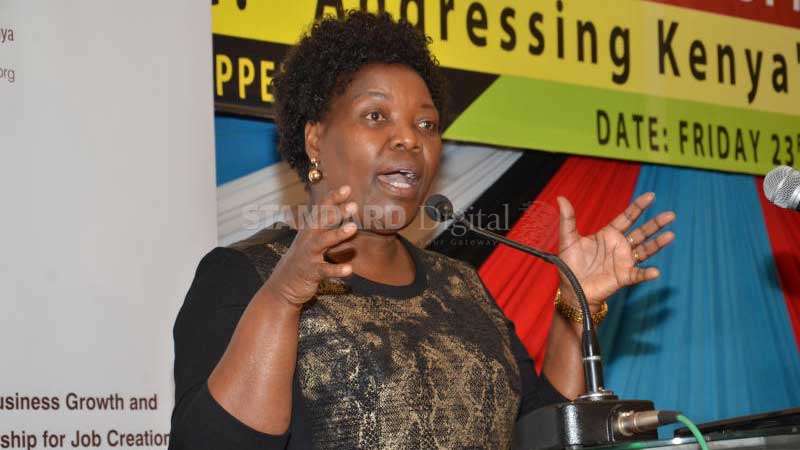×
The Standard e-Paper
Fearless, Trusted News

The proposal by Government to remove both FKE and Cotu representatives from NSSF Board has now been taken before the International Labour Organization.
Federation of Kenya Employers Executive Director Mrs. Jacqueline Mugo told a packed 107th ILO conference in Geneva that a proposal by Kenya’s National Assembly to remove both employers and workers representatives from the Fund was in bad faith.